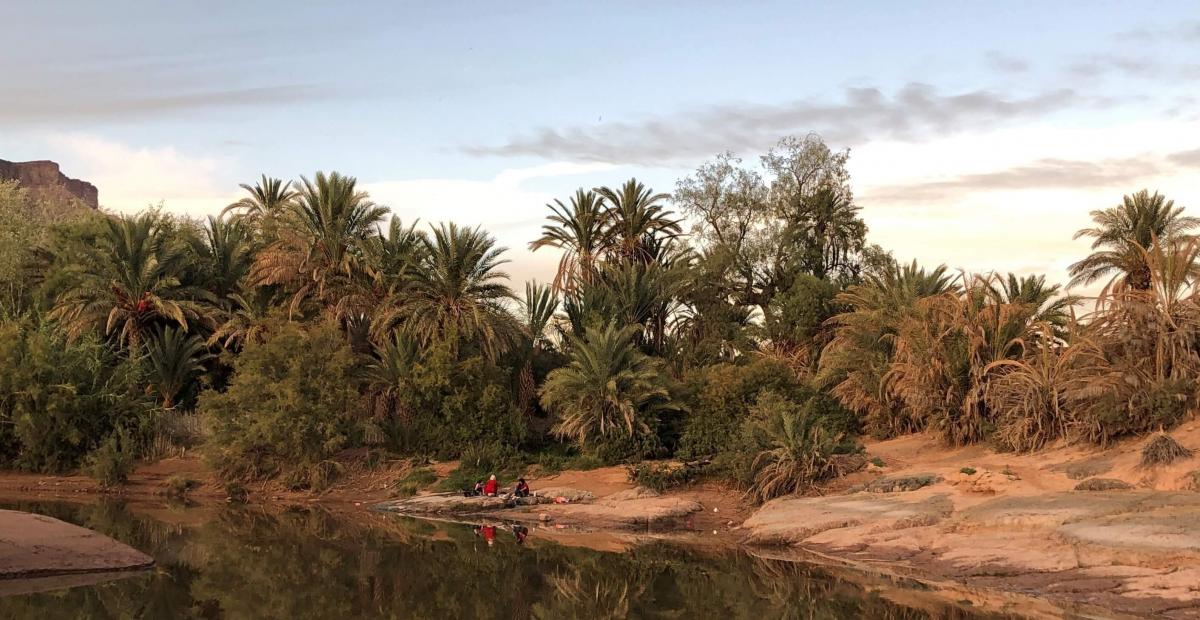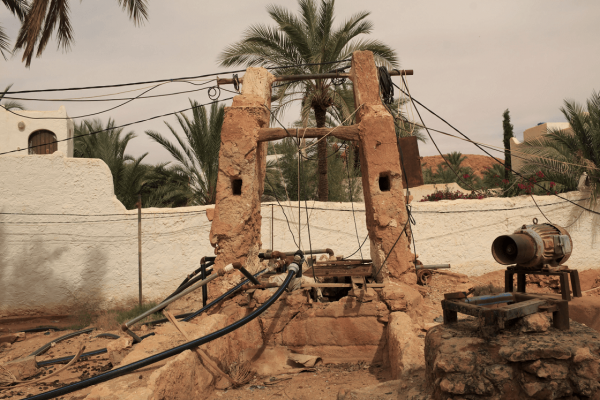- Home
- Worldwide
- CIRAD worldwide
- Projects
- T2GS project
Transformations to groundwater sustainability: joint learnings from human-groundwater interactions - T2GS

The Mezquita Oasis in the Draa Valley, Morocco © Lisa Bossenbroek and Zakaria Kadiri
Issues
Billions of people depend on groundwater for their existence. However, the invisibility of these resources makes them difficult to manage and complicates efforts to avoid overuse and pollution.
Several initiatives are now emerging, in territories where pressure on water resources is particularly high. Studying, comparing and disseminating knowledge about these new methods for using groundwater could prove crucial, and considerably improve public policies on the management of groundwater resources throughout the world.
Description
Changes towards groundwater sustainability require a critical analysis of the types of development that are causing the current problems of overuse in many countries around the world. The T2GS project aims to develop new insights about groundwater, through the comparative documentation of promising local initiatives concerning these resources in places where they are under particular pressure.
Instead of focusing on the efforts of governments to control individual pumping behaviours, T2GS highlights the way in which communities are organising around the sharing, management and replenishment of aquifers. By concentrating on practices, this approach combines qualitative ethnographic methods with hydrogeology and engineering insights to explore, assess and learn from the knowledge, technologies and institutions that characterise these initiatives.
Expected changes
- Local initiatives for sustainable groundwater management in the areas studied by T2GS will be identified
- The innovations will be shared between territories with similar issues
- Pressure on groundwater resources in the territories covered by the project will be reduced
Expected impacts
- In the longer term, the dissemination of these innovations will lead to changes in water policies, for greater sustainability of groundwater and of the communities that depend on this resource
- The efforts of the communities that carefully manage groundwater will be supported and shared
Contract partners
University of Amsterdam, Faculty of Social and Behavioural Sciences, Pays-Bas (co-ordinator)
Stockholm University, Department of Human Geography, Sweden
University of Lancaster, Department of Geography, United Kingdom
UC Santa Cruz, Sociology Department, California, USA
Society for Promoting Participative Eco-system management (SOPPECOM), Pune, India
Advanced Center for Water Resources Development and Management (ACWADAM), Pune, India
CIRAD-ES Centre de Coopération Internationale en Recherche Agronomique pour Le Développement (CIRAD) - Département Environnement et Sociétes (ES) (coordinator for ANR)
























